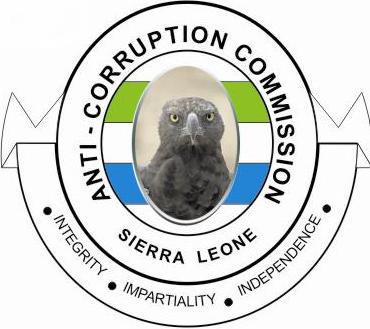By Bernard Abass Kargbo
Corruption, it is believed, cannot be effectively controlled without community involvement. This suggests that community participation, which acts as an informal mechanism through which the community engages officials or service providers to give account of their stewardship, has significant effects on the fight against corruption. This is very true in cases of public service delivery, for instance, where corrupt practices lead to huge social costs for the end users.
In a situation where the community is empowered with adequate information, to resist, reject and properly report corrupt acts or abuse of power, it will open up the prevalence of community action in the fight against corruption. Empowering the community with information on corruption-related issues and anti-corruption practices, community members will make meaningful contributions to fight the plague of corruption in Sierra Leone.
We cannot argue against the fact that corruption is capable of undermining national development, especially with practices such as favoritism, abuse of office, bribery and other corrupt behaviours which are mostly common in points of service delivery due to weaknesses in systems and monitoring.
While it is the case that resources of the State are often supplied to all sections of the country, it is also true that some of these resources do not always get to their intended destinations. This means they are sometimes misappropriated along the chain of supply by crooked public officers and contractors, thereby depriving the masses. The examples are many- from the act of health care workers stealing drugs meant for hospitals or community health centres to the act of local authorities stealing solar lights and batteries to light up their own compounds.
However, the irony is, those who perpetrate these acts of corruption are people that do not only reside in the communities but people who are also protected by the community people who suffer the brunt of these acts of corruption. Until the community people take up the responsibility of protecting the resources that belong to them and expose rogues in their communities, the fight against corruption would continue to face very stiff challenges.
The Way Forward
Soliciting and ensuring community participation in the fight against corruption does not occur in a vacuum. It requires constant engagement with communities to enable them properly understand local factors that would help them to shape individual beliefs and convictions, which in turn can help shape their views about corrupt practices.
A sustainable way to build mutual trust between community members and Government is to strengthen the community’s desire for the fight against corruption and empower them to be able to hold people in authority accountable. Community monitoring activities, for example, will aid in the detection of corruption, the reduction of budget leakages or extra-budgetary expenditures, and the improvement of the quantity and quality of public service delivery.
Furthermore, the community should be empowered to be able to expose corrupt activities and the risks that may otherwise remain hidden. In other words, community members are mostly the end users of most services provided by Government, and are also the first port of call in detecting corruption. If they feel involved in the fight against corruption, as the Anti-Corruption Commission is doing now through it several public education and outreach activities, they will believe that it is their moral responsibility to report corrupt activities.
Keeping the public sector honest, transparent and accountable to community members is also pivotal in the fight against corruption. This means making the public sector accountable to the community as it will give communities a sense of ownership and thus the urge to resist, reject and or report corrupt practices.
People who perpetrate acts of corruption often circumvent existing laws and procedures, thereby causing goods and services that should be available to the public instead being made available only to those who pay bribes. This is why community participation is important – for such deprivation tends to affect the majority of the populace.
The role of community members is better defined in terms of social accountability, in which citizens fight corruption by keeping it in check, critically evaluating the conduct and decisions of public officials, reporting misconduct, and requesting appropriate remedies. Individuals can help the fight against corruption by reporting misconduct to the ACC, the media, as well as by supporting public awareness initiatives like; ‘Meet the school’ campaigns and customized meetings with MDAs,’ which aim at fostering a culture of integrity and zero tolerance for corruption. Our personal resolve not to take part in corrupt activities is also a powerful act of resistance, coupled with the zest to report any acts of corruption.




